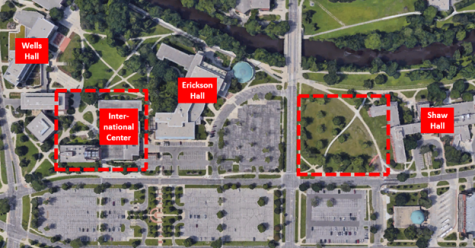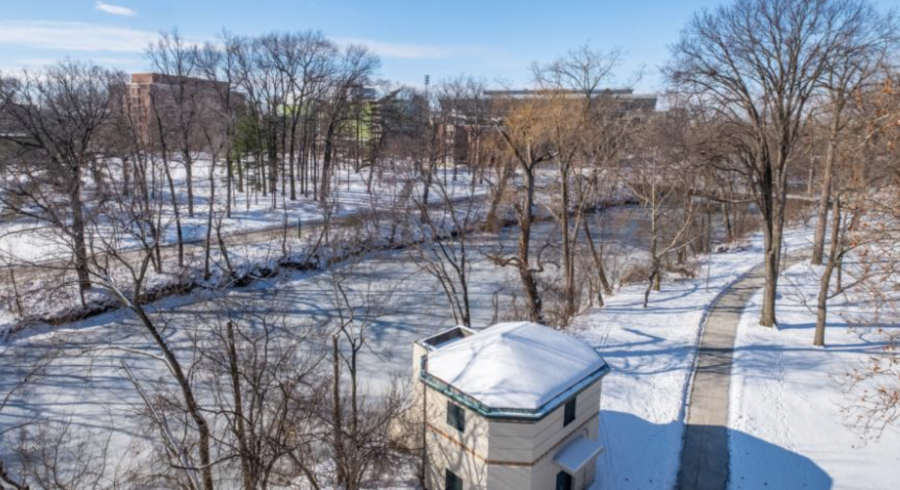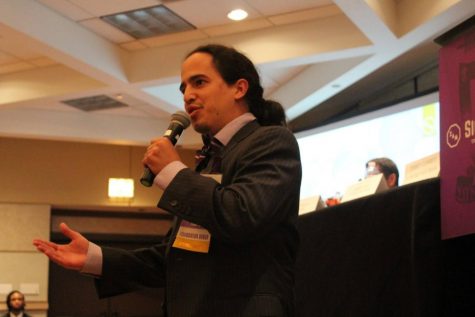MSU Multicultural Center Design Plans Unveiled at Public Engagement Session
February 10, 2021
EAST LANSING—With Black History Month in full swing, several events are being held around campus and virtually to celebrate the successes and contributions that the Black community has made in American society. One unique event that directly impacts the MSU student population took place on Feb. 9. Members of the Multicultural Center (MCC) Feasibility Study Steering and Planning Committee and contracted consultants hosted a community engagement session to present the progress since the project’s inception.
Information was collected from 400,000 students, faculty staff and alumni to inform, and three focus groups were hosted, consisting of 40-50 people. Focused conversations were also facilitated with representatives from the Council of Racial and Ethnic Students (CORES) and the Council of Progressive Students (COPS) leadership. A key feature of the MCC Steering and Planning Committees is prioritizing student representation, with students serving on both committees.
These facilitated dialogues resulted in a program outline to guide the building planning, with features like reflection rooms, personal health rooms, a Dreamer Center and a community kitchen. Multicultural student organizations will also have dedicated spaces to host events, with a contingency for significant events and meeting rooms, delegated through CORES (Council of Racial and Ethnic Students) and COPS (Council for Progressive Students).
There are two areas of interest for developing this multicultural center; the International Center (IC) or perhaps a new building at the corner of Shaw Street and Farm Lane.

If the center were to be developed at the IC, it would involve expanding the northern and southern portions of the building. Each end would consist of two floors, with the northern section facing the Red Cedar River, elevated above the ground, providing a plaza with amphitheater seating for a performance space to exist below. Essentially, this would be an expansion of the Multicultural Unity Center (MOSAIC), currently situated in the MSU Union.
For the empty space on the corner of Shaw St and Farm Lane, two designs were considered and presented for constructing a new building. The first design for a new building follows an arc shape and would be three floors tall. The body of the building would track along the curvature of the sidewalk that runs beside Shaw Hall. In the same location, another design concept being considered is an arc-shaped building with a large circular atrium serving as the main entrance. The building would consist of a ground, first and second floor with more room for outdoor space. A common feature between the two designs is developing an International Sparty’s, which would provide products that reflect diverse foods from multiple cultures.
Once the MCC designs were presented, a Zoom poll was released for attendees to fill out based on the content presented. According to the poll, 74.6% of attendees felt like this building will meet the need of students from diverse backgrounds while 23.8% were unsure. The poll also showed that based on the three designs, the atrium was the most favored option, both in terms of providing a sense of safety and accessibility. Following the poll, a Q&A discussion was held.
A big item that caught people’s attention was the possibility of moving The Rock closer to the MCC. Concerns included recommending the steering and planning to consider “how that monument has been used to spread hate speech in the past.”
Other questions raised included concerns about flooding from the Red Cedar River and accessible parking. Tiana Carter, Office Manager of the MSU WorkLife Office and member of both MCC committees, addressed these issues in the Q&A function of Zoom, stating that the locations are not in “a flood zone” and “the details of accessibility will also be addressed in the design phase of the project.”
People are excited for this new MCC to move from a concept to reality. The next major step will take place in April 2021, when the Board of Trustees provides an Authorization to Plan recommendation for the building. However, the building’s scheduled completion date is still too far in the future to give a definite date.
Through this building, diverse identities can be celebrated and promoted openly throughout the year, rather than for a month.































